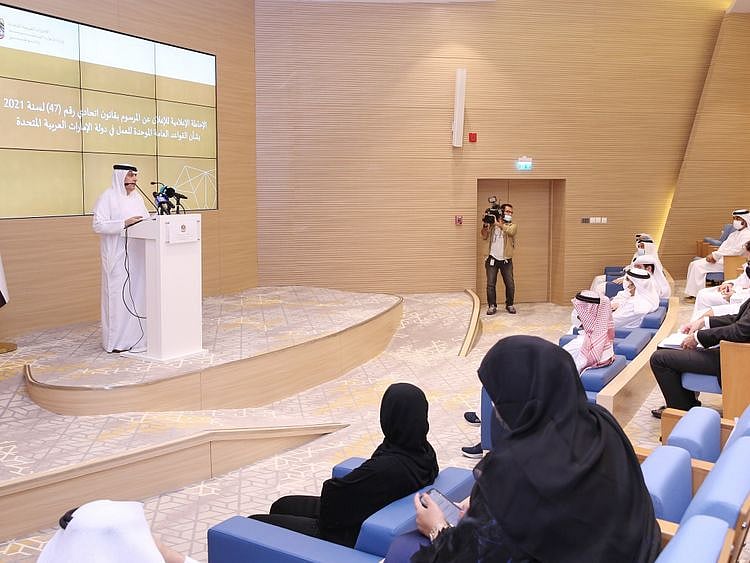UAE decree unifies public, private sector work systems
As of February 2 next year, employees in both sectors will get similar leave, work models

Dubai: In a step to minimise the gap between the UAE’s public and private sectors, the Ministry of Human Resources and Emiratisation on Monday announced a decree that unifies the working systems.
As of February 2, 2022, employees in both sectors will get similar leaves and work models, including flexible, part-time and temporary work.
Under the new Federal Decree Law no. 47 of 2021, employees in both sectors will get the same end-of-service benefits.
Last Tuesday, the UAE government announced federal government departments would switch to a four-and-half-day week from January 1, 2022.
The new decree approved by UAE President His Highness Sheikh Khalifa bin Zayed Al Nahyan, is in line with the UAE’s largest legislative reforms with more than 40 new laws.
Eight working hours
Under the new decree, limited contracts will be applied in the UAE’s labour market. Employees in the normal work model in the public and private sector will have eight working hours per day or 48 hours per week with no more than 144 working hours per three weeks.
Dr Abdul Rahman Al Awar, Minister of Human Resources and Emiratisation, said the end-of-service benefits for Emiratis in the public sector will be based on legislation regulating pensions and social security, while expats in the public sector will have end-of-service benefits based on the basic salary.
“The worker is entitled to a gratuity for the served fraction of a year, provided that he completes one year of continuous service. The end-of-service gratuity is calculated on the basis of basic salary,” Dr Al Awar said.
An employee who has spent one year or more in continuous service shall be entitled to an end-of service gratuity upon the termination of his service.
Gratuity shall be calculated as follows:
If an employee has served for more than one year but less than five years, he is entitled to full gratuity pay based on 21 days’ salary for each year of work.
If the employee has served more than five years, he is entitled to full gratuity of 30 days’ salary for each year of work following the first five years.
“We allowed companies to adopt any alternative systems of end of the service,” he said.
Dr Al Awar said the new unified rules will strike a balance between the public and private sectors.
“The new rule is the first of its kind as it unifies the general rules of work in the country based on limited contract. The new law aims to ensure efficiency in the labour market and also attract and preserve the best talents and skills for employment as well as providing a stimulating and attractive work environment for employees,” he said.
Dr Al Awar said that the work models, including flexible, part-time and temporary work, will help in investing employee skills in the country for the benefit of the public and private entity.
“Employers can decide the models like full time, temporary work, part time and flexible work,” the minister said.
Employees in the UAE will be protected under anti-discrimination provisions that prohibit employers from recruiting on the basis of race, colour, gender, religion, nationality, social origin or disability.
As per the decree, the leaves for full-time employees working in the public and private sector will be a minimum 30 days per year. If the employee’s service is between six months to one year, then he is eligible to get two days each month.
Major reforms
Recently, the ministry announced major reforms in the private sector in the new UAE labour law. The latest rules will put public and private sectors under the same regulations.
The law includes other leaves like maternity, paternity, sick, study, compassionate leave (bereavement leave) etc.
According to Dr Al Awar, the private sector in the UAE will have the flexibility to choose their weekend days.
“It’s up to the employer to decide their weekend,” Dr Al Awar said.
He believes that private sector companies will make their decisions based on what they feel will improve their competitive position in the market.
Sign up for the Daily Briefing
Get the latest news and updates straight to your inbox
Network Links
GN StoreDownload our app
© Al Nisr Publishing LLC 2026. All rights reserved.